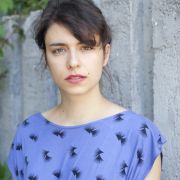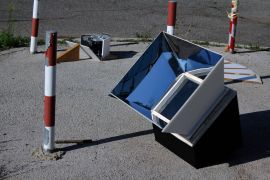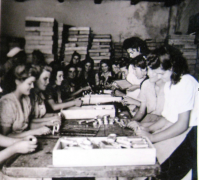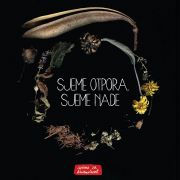Lea Vene is an art historian and cultural anthropologist. In her research in the field of visual art and anthropology, Vene constantly rethinks the role of visual media in translating elements of culture and everyday life through documentary film and photography.
For example, she examines image/visual ethics, self-reflexive practices in film making, sensory ethnography, the politics of representation, the relationship between “us” and “them,” advocacy in visual research, participatory and community art practices, and the negotiation of the marginal positions in the visual research.
Vene works as a curator in the gallery Miroslav Kraljević. She’s one of the organizers of ETNOFILm (Ethnographic film festival) and curator at ORGAN VIDA — International photography festival. She is an active member of the association grey) (area space for contemporary and media art. She is also a teaching assistant at Faculty of Textile Technology in Zagreb.
Lea Vene is also involved in ZMAG (Green Network of Activist Groups) and GMK (Gallery Miroslav Kraljević) that promote the interaction between artistic research and permacultural practices as a model for creating sustainable, flexible and productive cultures through the observation of natural systems. Three basic ethical principles are employed: care for people, care for the land and earth and the just distribution of goods. DIY principles and direct action are inscribed at the core of the permacultural way of thinking. Once a year they organize a thematic residency for an artist/artist collective, with topics so far ranging from alternative approaches to the production and processing of food based on renewable energy resources to DIY philosophy and ecological seed production.
Another project in which Lea Vene participates is Industrial heritage of the Island of Korčula, an inclusive collaborative platform encompassing scientific and artistic research which brings together the interdisciplinary approaches of cultural anthropologists, ethnologists, curators, artists, conservators, archivists and other experts. It also involves the local community, institutions, associations and initiatives. During the last century the Island of Korčula has based its production and economy to large extent on its well-developed industry: shipbuilding, assembling, fishing and package processing, textiles, paint, adhesives, varnishes, electronic devices, etc.



